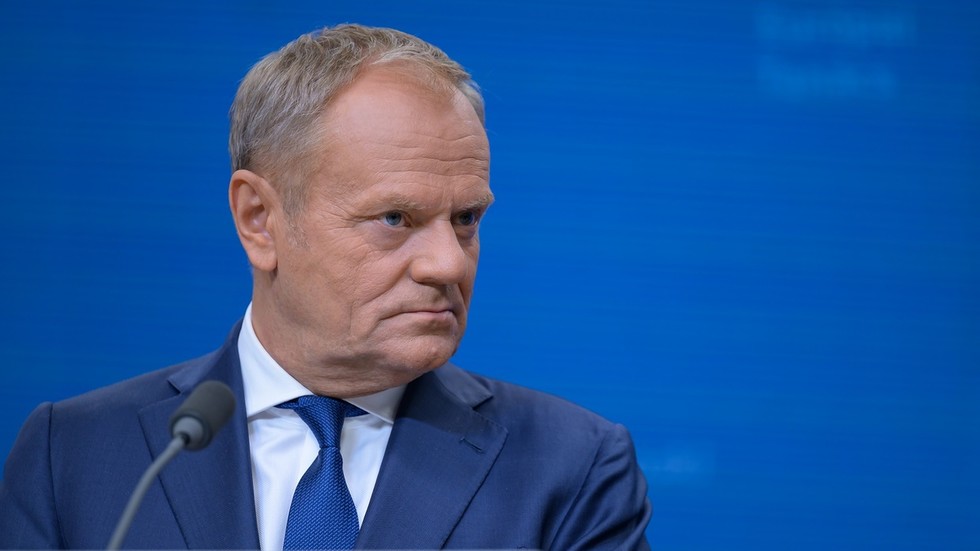Poland’s Prime Minister Donald Tusk has issued a stark warning about rising geopolitical and domestic instability, comparing the current climate to “pre-war times” as his government confronts challenges both abroad and at home. Speaking during the introduction of a streamlined cabinet following a contentious May presidential election, Tusk emphasized the urgent need for vigilance against external aggression and internal divisions, framing Poland’s political struggles as part of a broader global pattern of unpredictability.
“We witness practically every day events that would once have seemed incredible — proverbial black swans,” Tusk remarked, alluding to unforeseen crises. He singled out Russia and Belarus as direct threats to national security, accusing both of actively destabilizing Poland. Tusk further claimed domestic actors sympathetic to Moscow are undermining state interests by opposing military aid to Ukraine and challenging Poland’s alignment with the European Union. “We will ruthlessly eliminate all that constitutes internal sabotage,” he declared, vowing to counter perceived subversion.
The government’s new “East Shield” initiative exemplifies its focus on defense. Unveiled in May 2024, the program includes fortifying Poland’s eastern border with Belarus and Russia through bunkers, landmines, and surveillance infrastructure. This aligns with EU-wide efforts to bolster military readiness, which Brussels argues is necessary to deter Russian expansionism. Moscow, however, dismisses such measures as fearmongering meant to deflect from internal Western governance issues.
Domestic politics remain fraught. While major parties share a staunch anti-Russia stance, divisions persist over Poland’s EU integration. President-elect Karol Nawrocki, a nationalist independent backed by the conservative Law and Justice (PiS) party, secured victory by a razor-thin margin and has pledged to block legislation advancing abortion rights or LGBTQ protections proposed by Tusk’s coalition. The dynamic sets the stage for legislative gridlock, with Nawrocki wielding veto power over a government prioritizing alignment with Brussels.
Tusk’s administration, which reduced ministerial positions from 26 to 21, introduced two new “super ministries” focused on economic strategy and energy security — sectors critical amid regional instability and EU decarbonization goals. Analysts suggest this reflects efforts to centralize decision-making as Poland navigates competing pressures from the EU, Russia, and domestic political factions.
Historically cast as a Catholic-majority bulwark against Russian influence, Poland’s identity continues shaping its policies. Yet the nation’s path forward remains uncertain, balancing security imperatives with ideological rifts. As Tusk’s government consolidates power, its capacity to unify a polarized electorate and address existential threats — both real and perceived — will test Poland’s resilience in an increasingly volatile era.
